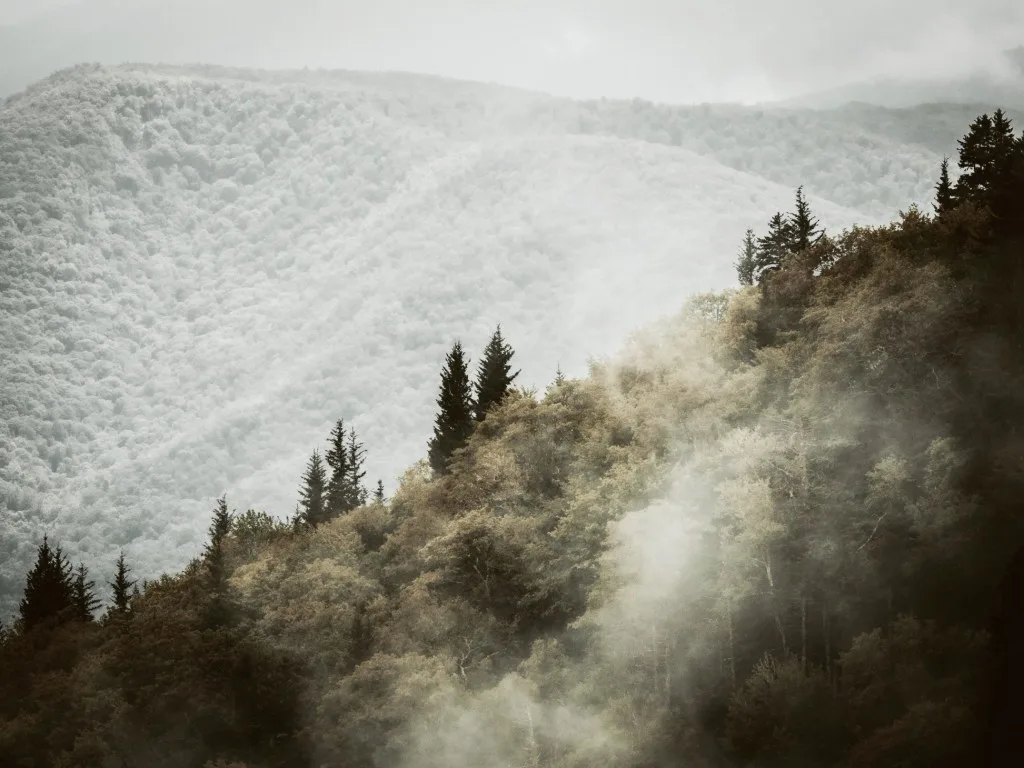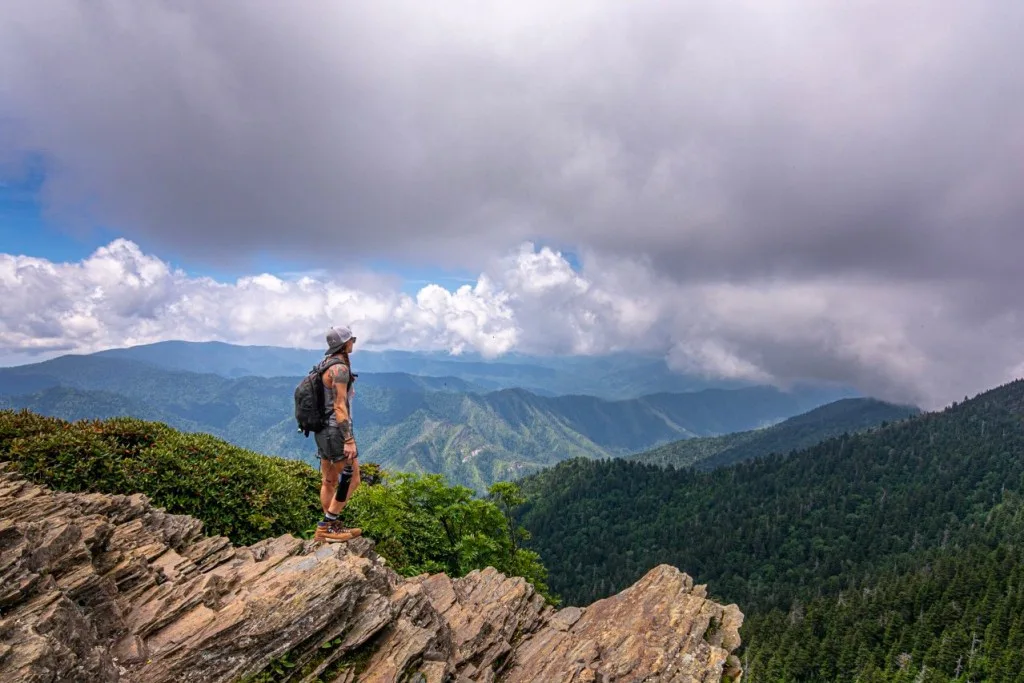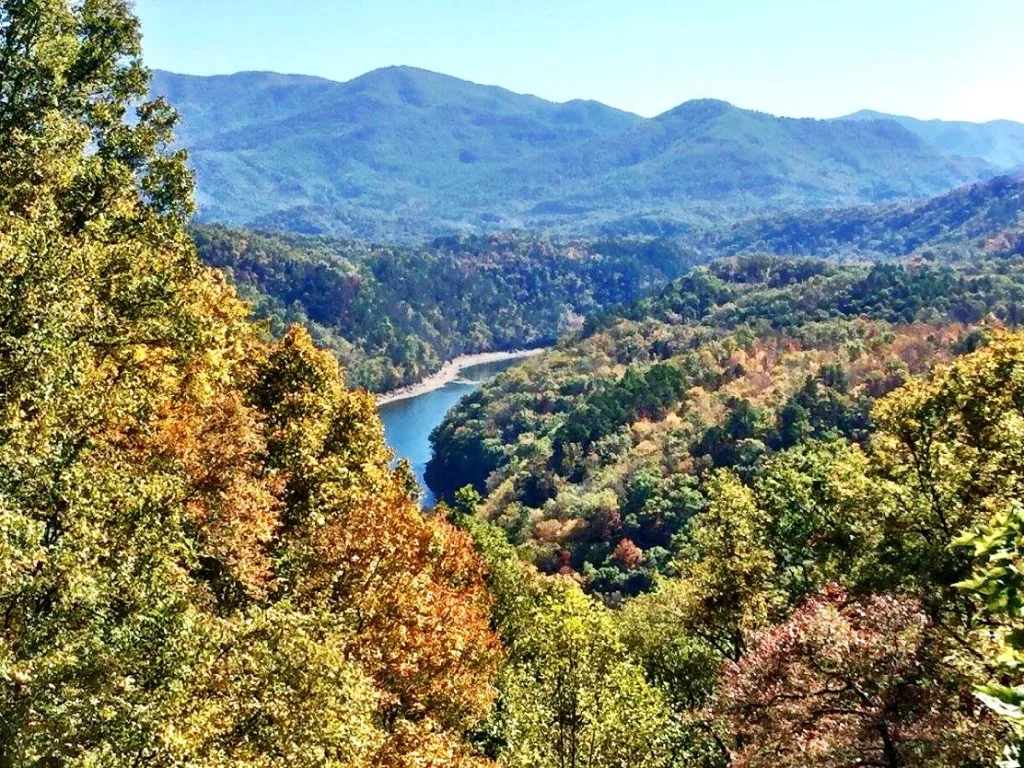The National Park Service recently announced plans to implement new fees for the Great Smoky Mountains National Park beginning in 2023. It would be the first revenue system of its kind for this national park.
Locals and international visitors alike wonder if this fee hike is really necessary.
So, we looked into the proposed changes to see what we could find out. If you plan to visit this park in the future, you may want to continue reading.
Let’s take a look!
Great Smoky Mountains NP Wants to Know What You Think About Fees
In early April 2022, The Great Smoky Mountains National Park asked for public input on their plans for new park fees. This park is at a crossroads.
Attendance has boomed over the last decade, but the Congress-appropriated park budget has not. Unfortunately, more people using the bathrooms, roads, and campsites doesn’t mean more money to maintain or upgrade said facilities.
According to Park Superintendent Cassius Cash, the goal of this program is to put money into maintenance so people can enjoy the park for generations. Officials want to keep up with rising operational costs while leaving the park accessible to all.

More About Great Smoky Mountains National Park
Great Smoky Mountains National Park is in the Appalachian Mountains of North Carolina and Tennessee. And more guests visit there than any other national park in America. This majestic park spans over 522,000 acres of forests, mountains, and rolling rivers.
The Great Smoky Mountains provide protected land for hundreds of animal species. It’s the most biodiverse park within the National Park System.
That’s amazing for the wildlife, but not for your dog. Only two trails allow dogs so as to keep the local critters peaceful and away from canine cooties. Check the rules before you go to avoid disappointment for your furry friends!
Campers have abundant choices as far as campgrounds in Smoky National Park. Campground options include frontcountry, backcountry, group, and horse campgrounds.
Hikers will never get bored: there are 150 trails to choose from! And skittish campers who need a touch of city comforts will find solace in nearby towns like Pigeon Forge and Gatlinburg.
With the Great Smoky Mountains being so popular, the park can get extremely crowded. Attendance has increased by 57% since 2012. We’re not surprised that they’re proposing a new fee structure to help with overall park maintenance.
Pro Tip: Want to stay at The Single Most Exclusive Place in the Smoky Mountains? We uncovered how you can!

What Fees Do They Plan to Add or Increase at Smoky Mountains NP?
Parking Tags
Smoky Mountains Park is proposing a paid parking tag system. Unofficial roadside parking would no longer be permitted. The park would charge $5 per vehicle per day. A parking tag for up to seven days would cost $15 and $40 for an annual tag.
We think this is a bargain! Other national parks charge $9 per day and around $50 per year. Commuters or those on a scenic drive would not need a parking tag.
Frontcountry Fees
The proposed Smoky Mountain fees for its traditional campgrounds would be around $30 per night. This is a significant increase for campsites like Big Creek and Cosby.
The same increase goes for horse campgrounds and picnic areas. Anthony Creek Horse Camp would go from $23 per night to $30. Sites like Deep Creek Picnic Pavilion would cost $7 more than it does currently.
Backcountry Fees
Backcountry camping refers to backpacking, camping with only what you can carry. No vehicles, bathrooms, or amenities are available. Great Smoky National Park requires a permit and has specific areas to set up camp.
The Smoky Mountain fee for backcountry camping will increase from $4 per night to $8 per night. The Appalachian Trail Thru-Hiker seven-night permit would double, costing hikers $40 per permit.

Why Do They Want to Make Fee Changes at the Great Smoky Mountains NP?
Although no one enjoys talking about fee hikes, we all know they’re necessary from time to time. Great Smoky National Park managers have had to make tough choices recently. Reduction in visitors services and a decrease in staffing levels are two ways the park has had to offset inflation and a stagnant park budget.
100% of all revenue from the proposed Smoky Mountain fees will go back into the park.
Daily bathroom cleaning, trash pickup, and structural repair will increase with a more extensive park piggy bank. More staff, including park rangers, law enforcement, and emergency attendants, will also improve visitor safety.
The park is in dire need of restoring many recreational habitats for wildlife. Better wildlife habitats will provide increased opportunities for photography and fishing. And with visitation projected to continue rising, approval of the Smoky Mountain fees is crucial to the park’s future.
Pro Tip: Make your Great Smoky Mountains trip easier by making sure to Avoid This Entrance to Smoky Mountains National Park at All Costs.
How Much is the Entrance Fee for the Park?
There’s no fee to enter Great Smoky Mountains National Park. Two major state-owned highways cross the land. Commonly known as Newfound Gap Road and Little River Road, the states declared these toll-free as they were vital to interstate travel and commerce.
These state laws existed long before the park’s establishment in 1934. A 1951 deed transferring these roads to the park maintained the restriction of tolls.
Under Federal law, the park cannot enact any entrance fees as long as tolls are prohibited on the two roads. Therefore, it’s safe to assume that Great Smoky Mountains National Park will be free to enter for the foreseeable future!

How Do I Provide Input on the Proposed Fees for Smoky Mountains National Park?
The National Park Service wants your feedback on the proposed Smoky Mountains fees.
You can submit comments online through May 7, 2022, via the NPS website.
Park management answered several viewer questions during the virtual public meeting held on April 14th, 2022.
Will there be a discount for locals? No, but the annual pass will still provide a sizable discount.
Will one family be allowed to apply one parking pass to several vehicles? Park officials are still debating this, so be sure to chime in!
Other topics of conversation included whether holders of America the Beautiful passes will get a discount or not. This decision is yet to be determined.
Parking tags won’t be limited or capped. Traffic will most likely be the same until the revenue raised can pay for new congestion services.
New Fees Proposed for Great Smoky Mountain National Park Make Sense
While some campground fee increases are a little steep, a $5 parking fee in 2023 seems more than fair. The goals of national parks have always been to provide sanctuary for our wildlife and land while giving people easy ways to enjoy them. As time marches on, we may need to provide more to help maintain these national treasures.
What do you think about these new fees? Would you pay a higher price to visit your favorite national park?
Discover the Best Free Camping Across the USA
To be honest with you, we hate paying for camping. There are so many free campsites in America (with complete privacy).
You should give it a try!
As a matter of fact, these free campsites are yours. Every time you pay federal taxes, you’re contributing to these lands.
Become a FREE CAMPING INSIDER and join the 100,000 campers who love to score the best site!
We’ll send you the 50 Best Free Campsites in the USA (one per state). Access the list by submitting your email below: